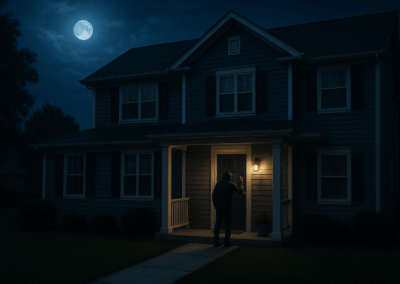As of April 1, 2025, Colorado’s House Bill 24-1349 has rolled out a 6.5% excise tax on firearms, ammunition, and related components like barrels and triggers. The state pitches it as a revenue generator for noble causes: crime victim services, mental health programs, and school safety upgrades. On the surface, it’s hard to argue against helping victims or bolstering schools. Yet for many gun owners, retailers, and Second Amendment advocates, this tax feels less like a public good and more like a targeted jab at their constitutional rights.
Who Pays the Price?
The tax hits legal buyers—folks who play by the rules, whether they’re buying a handgun for self-defense, a rifle for hunting, or ammo for target practice. Firearms already carry a federal excise tax of 10-11%, a levy baked into prices since the 1919 Pittman-Robertson Act to fund conservation. Adding Colorado’s 6.5% on top could mean a $30 hike on a $500 firearm. For some, that’s pocket change. But for others living in Colorado—say, a single parent or a rancher—it’s a sting. Rural residents, where law enforcement might take 20 minutes or more to arrive, often see guns as a necessity, not a luxury. Critics say it’s unjust to heap costs on the law-abiding while criminals, who often snag guns through theft or black markets, dodge the tax entirely.
A Constitutional Concern
Taxing a right, like the Second Amendment’s promise to bear arms, stirs up big questions. The U.S. Supreme Court has long held that rights can’t be unduly burdened by government action, yet here’s Colorado singling out gun purchases for an extra fee. If lawmakers can tax firearms, what stops them from slapping a surcharge on printing presses to fund media literacy, or on church donations to pay for community centers? It’s not a wild leap—California’s similar 11% gun and ammo tax, enacted in 2023, is already facing lawsuits claiming it violates the Second Amendment. Supporters counter that it’s no different from taxing cigarettes to fund healthcare—a “user pays” model. But guns aren’t vices; they’re tools of a protected right. If this holds, it could nudge ownership out of reach for lower-income citizens, turning a right into a privilege.
Does It Even Work?
The pitch is compelling: tax revenue will fund trauma care for shooting victims, counseling for troubled kids, and better locks on school doors. Who wouldn’t want that? The catch is that there’s no hard evidence yet that taxing legal gun buyers cuts crime. Criminals don’t browse racks at Cabela’s; they trade in back alleys or steal from homes. Colorado’s tax might rake in millions—projections estimate $15-20 million annually—but if it doesn’t dent violence, it’s just symbolic. Lawmakers could instead tighten penalties for straw purchases (when someone buys a gun for a prohibited person) or boost community policing. Those might hit closer to the source without pinching lawful owners.
Uneven Rules
Here’s where it gets prickly: law enforcement and active-duty military are exempt. Cops and soldiers need affordable gear—fair enough. A deputy in Montezuma County or a Fort Carson private shouldn’t be priced out of training ammo. But why not extend that break to a civilian mom in Aurora who wants a pistol for her nightstand? Self-defense isn’t just for badge-holders. This carve-out fuels the gripe that HB24-1349 plays favorites, shielding government insiders while everyday folks foot the bill. It’s not a conspiracy—just a policy choice that rankles.
What’s Next
Gun rights groups see this as step one on a slippery slope. If Colorado can tax guns today, what’s tomorrow—annual registration fees? Caps on ammo buys? Forced gun insurance? Once the state gets cozy with financial barriers, the playbook’s open. Look at New York: after hiking gun permit fees in 2022, it faced pushback but kept going.
HB24-1349 is a bold swing at funding public safety, but it leans heavily on gun owners to make it work. It’s a gamble: balance the books without breaking trust. For now, it’s a lightning rod—praised by some as pragmatic, blasted by others as overreach. Until we have peace on earth, the debates continue on as loaded as our guns.




0 Comments